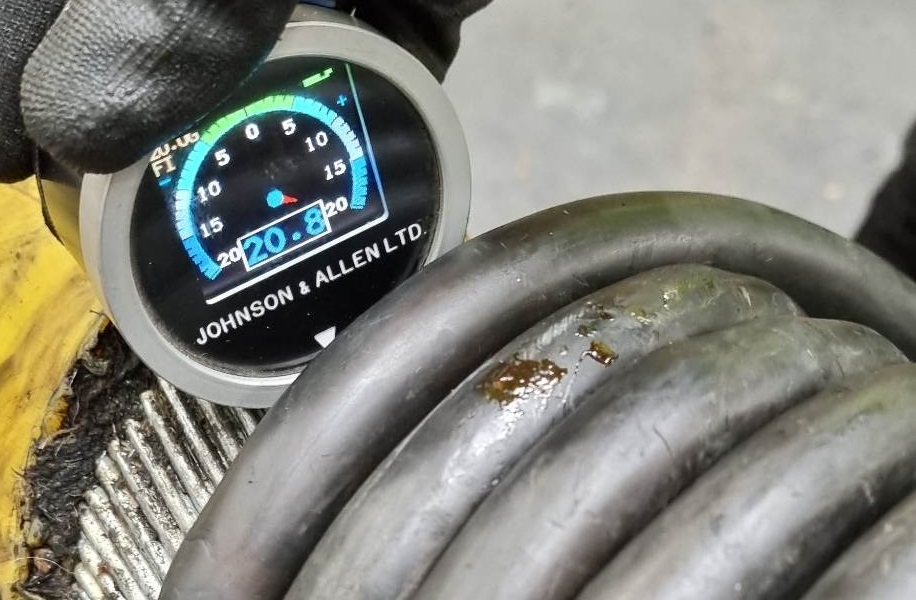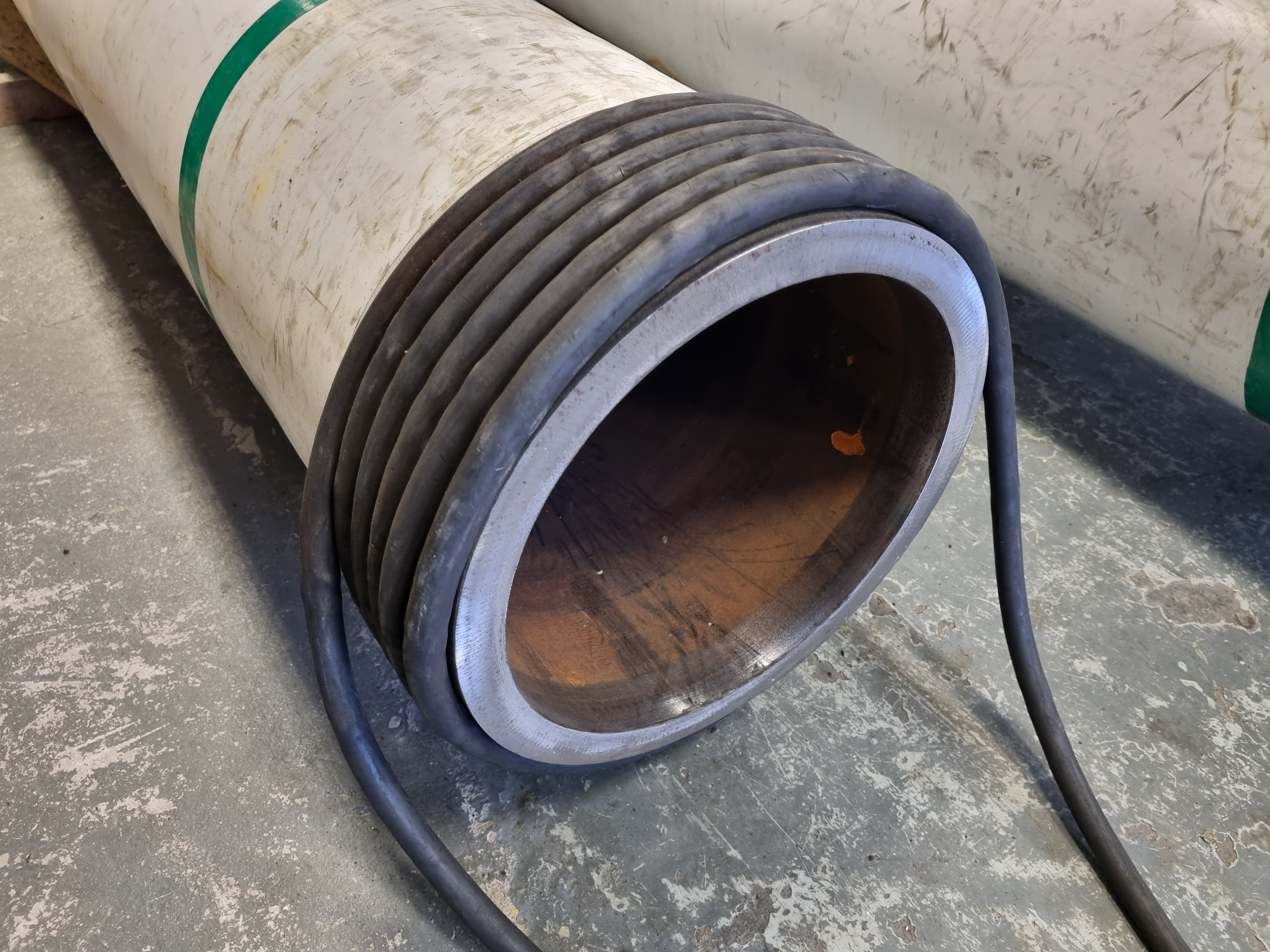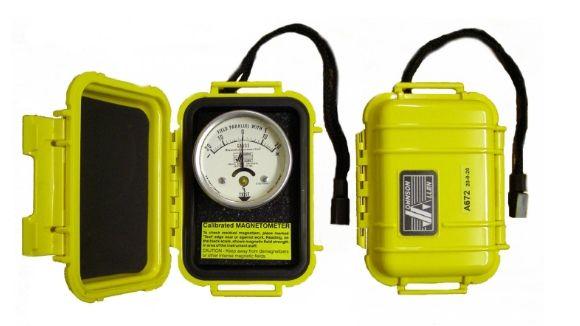Degaussing Services
Component Degaussing Services
Why is demagnetisation important?
Residual magnetism is a common side effect when machining ferromagnetic materials, yet it can cause serious engineering problems. It is also present when components have been lifted using electromagnetic cranes.
Later production processes like electron beam welding for instance can be ineffective on components with high residual magnetism where weld penetration can be significantly reduced in localised areas. Residual magnetism can also impair how in-service components work and wear. So much so that many production standards state demagnetisation (sometimes called ‘degaussing’) must be undertaken as part of the finishing process.
Degaussing Services
Johnson & Allen offer Degaussing Services from our head office in Sheffield, UK and have an extensive range of equipment which can be used to demagnetise components. This includes various aperture demagnetisers, coils and power packs suitable for use on everything from small nuts and bolts to larger components like turbines, wheels and extruded structures several meters in length.


We can also provide our services at customer sites if a suitable mains supply is available for the equipment selected to achieve the desired result. Our largest equipment used can require 415V (3Ph+N+E) fused at 63 Amps (and above) which not all sites have, however this can be discussed when scheduling the works.
There are many variables to consider when trying to achieve successful degaussing; such how the magnetism was induced in the component to begin with, the level of demagnetisation being sought and the shape, geometry and material of the component. For those not familiar with the intricacies it can be daunting but our expertise can simplify the process and achieve results.
.png)
How does magnetism get induced?
Residual magnetism can be induced in a component in many ways – Common processes known to cause magnetisation are heat tempering processes using electrical induction coils and lifting magnets which are common for manipulating sheets of steel. You can also find magnetism induced in parts / tools where there is rotational movement such as with generators, motors, wheels, lathes and spinning machines.
Acceptance Criteria
Due to magnetic hysteresis, it is generally not possible to reduce a magnetic field completely to zero, so degaussing typically induces a very small "known" field referred to as bias. As a result some industries use the concept of an acceptance criteria where they state a maximum permissible level of magnetism – Typical values are 2, 3 or 5 Gauss.
Where an acceptance criteria is not imposed the level of residual magnetism sought will depend on the application and the reason why the component needed to be demagnetised in the first place.
One of the best ways to assess if residual magnetism is present is to use a magnetometer (also known as a deflection type field indicator).

Other sectors use a compass needle deflection demagnetisation acceptance criteria, where a maximum needle deflection in degrees is permitted at a given distance. However readings from two different compasses may differ which makes comparisons difficult.
Unlike a calibrated magnetometer, compasses are designed to determine field direction and not field magnitude.
Previous Projects
Johnson & Allen has provided our expertise and demagnetisation services to sectors / projects including:
- Plate steel and steel billets for multiple sectors.
- Pipes, valves and pumps in the chemical processing and oil and gas sectors.
- Large constructions / assemblies before welding processes.
- Heat treated parts which have been hardened with induction heating processes.
- Compressor blades and turbine assemblies in the off-shore and energy sectors.
- Critical aerospace and nuclear components to strict criteria.
- Medical instruments and operating tools like scalpel blades.
- Presses and general tooling / chucks in the general engineering sector.
- Batch demagnetisation of small parts including nuts, bolts and fasteners.
- Extensive demagnetisation services within the military and defence supply chain of NATO aligned states.
Gauss Problems Solved
Johnson & Allen has decades of experience in demagnetisation and can assist any organization in projects where degaussing is required. Johnson & Allen make degaussing easy and we can also produce certification as part of the degaussing service which documents the level of residual magnetism remaining.
If documentation is required then please inform us prior to the work being undertaken - Where possible we will include photos in the report, subject to customer approval and whether photos are allowed on-site and data restrictions.
A demagnetisation trail is also a great way to assess the effectiveness of our products for a particular application before committing to purchasing your own demagnetiser from Johnson & Allen - A more economical long term solution for customers with regular need for demagnetisation capability. Contact our technical sales team through our website, by email or phone to discuss today.
